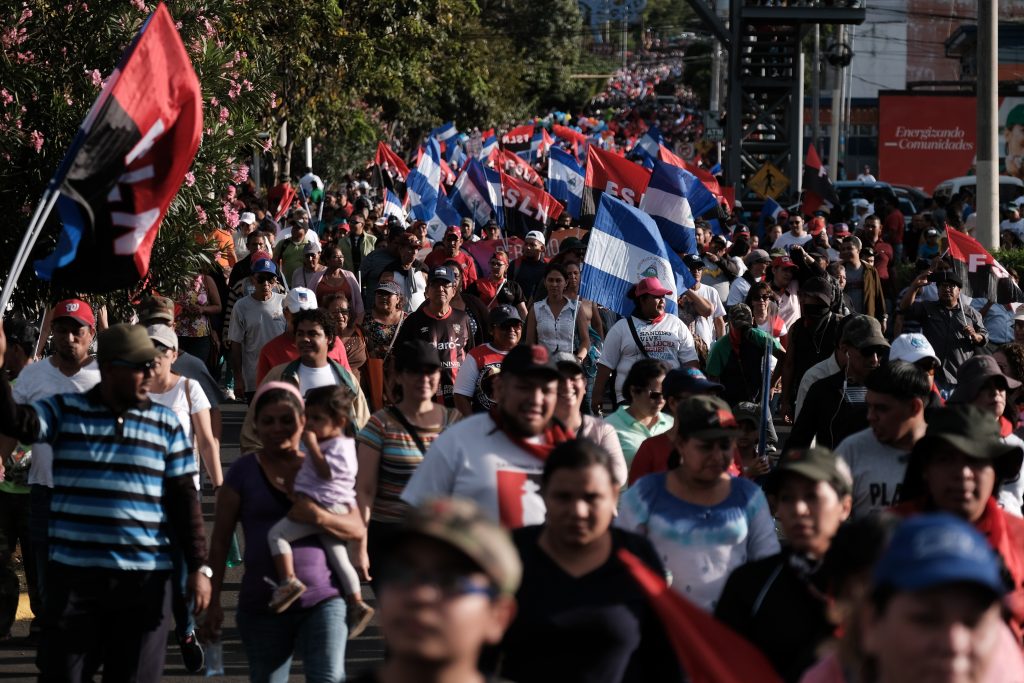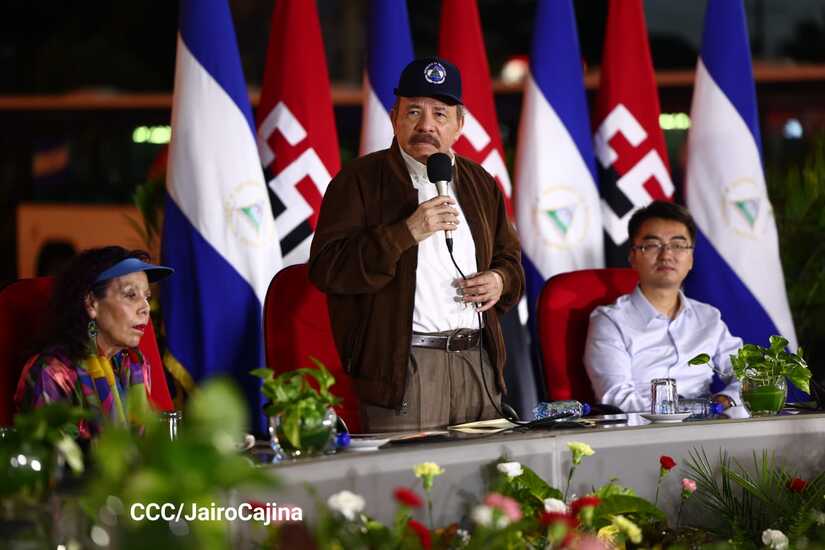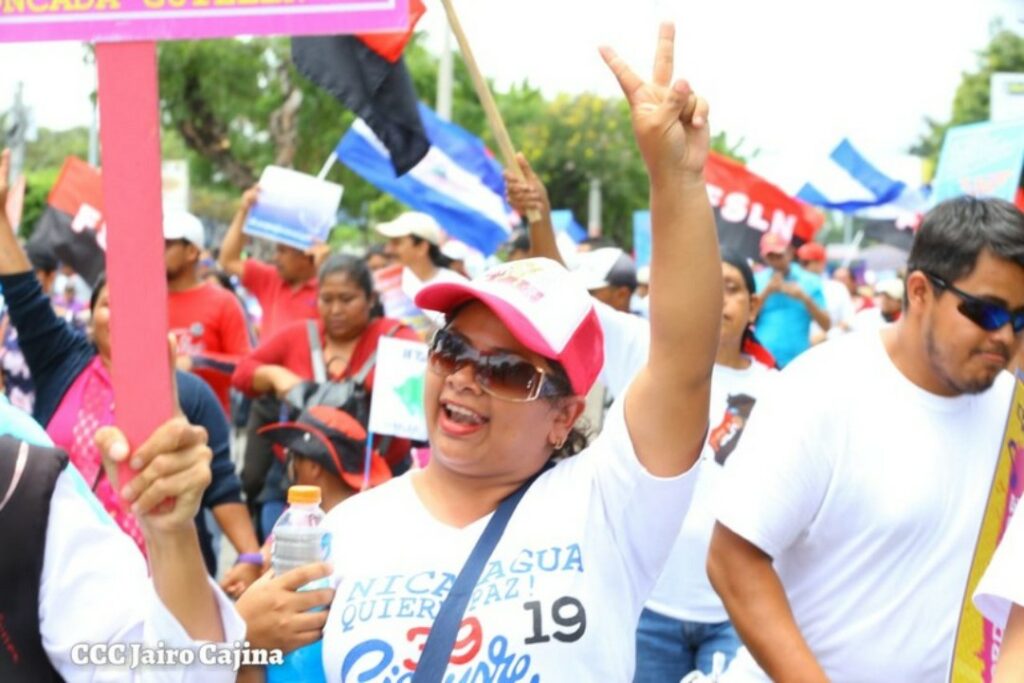The dismissals of state officials carried out by the regime in recent weeks have caused anxiety and unrest within the structures of the Sandinista Front and among public sector employees.
The dictatorship justified its actions by appealing to an evaluation of the work of each institution to “promote” savings, efficiency in spending, and public management. However, sources connected to the Ministry of the Interior (Mint) and the Office of the Comptroller General of the Republic (CGR), interviewed by DIVERGENTES, explained that behind the purge and the supposed internal restructuring as a reserve measure, there are also motivations tied to a lack of loyalty to the dictatorial couple and punishment for “internal corruption.”
“The purge is perceived as comprehensive. On one hand, the dismissals are carried out under the guise of ‘cost-saving measures,’ but the decision is made after an investigation into each employee reveals whether the official has been loyal to the regime or has engaged in undisclosed business dealings,” explained the Mint source consulted for this article.
According to a press release published by the Sandinista regime on August 2, the State would proceed to evaluate the work of each institution, its departments, and projects to promote savings and efficiency in spending. “The measure is aimed at generating greater availability of resources for the budget to strengthen direct care and foster further progress,” part of the statement reads.

In another statement published on August 7, the Sandinista regime, through Bruno Gallardo, Minister of Finance and Public Credit, announced that vacant positions (resulting from the purge or restructuring) and new hires would stop in all public organizations and entities, and that if a hire was necessary, a well-founded letter would need to be sent to that government institution for the request to be evaluated.
Any employment changes must be approved by higher authorities
“The order is that any changes in employment must first be known by the higher authorities. It wasn’t like this before; any minister could make decisions and hire whomever they wanted. But after the couple became fully aware of the ‘internal corruption,’ they decided to keep close oversight to prevent ‘infiltrators’ and new leaks of money,” said the Mint source.
The restructuring carried out since early August has affected employees of the Ministry of Health (Minsa), municipalities, the National Assembly, the Judiciary, the Ministry of Family, Community, Cooperative and Associative Economy (Mefcca), and even public universities.
“It’s a total purge that is being executed. No second chances are being given. Whoever failed, failed. The only salvation is if the dismissed person is a relative of someone very important, but so far, there haven’t been any cases like that,” said the CGR source.
Investigations into public employees
Although the main argument for the “restructuring” promoted by the Sandinista dictatorship is to promote savings and efficiency in spending, the sources consulted by DIVERGENTES do not believe there is a supposed economic crisis within Sandinismo. The regime’s measure, they said, seeks to further close the circle around the dictatorial couple to ensure absolute loyalty.
“Projects continue to be executed. Some international financial organizations have even unlocked loans for the continuation of programs. If the measure is supposed to bring savings, why not eliminate unnecessary positions that so far have only been a waste for the State?” asked the Mint source.

According to data from the Central Bank of Nicaragua (BCN), in 2007, when the Sandinista regime came to power, the bulk of public employees exceeded 30,000, and by the end of that same year, it reached 60,000. By 2023, the figure had doubled, with the State employing just over 112,000 officials.
The regime’s goal, according to sources consulted for this article, is to significantly reduce that number by eliminating unnecessary positions and canceling the contracts of those who have not demonstrated loyalty to the regime, either by refusing to participate in its activities or failing to report shady business dealings.
Special units to determine dismissals
To carry out the purge, the Sandinista regime has formed small units composed of officials from the National Economic Police, the Comptroller’s Office, the Ministry of the Interior, and political secretaries, who are responsible for investigating and auditing the payrolls of public entities to assess the necessity of the positions and their party discipline.
“In some ministries, positions were found that were held by people whose only job was to sign their monthly check. The money from their pay was shared between them and the person who ‘hired’ them. This money leak is evident in many institutions, which is why the purges will continue until the end of the year,” said the CGR source to DIVERGENTES.

According to the same source, in other state departments, investigations have led to the cancellation of contracts for public employees who have not demonstrated their loyalty to the Sandinista regime. These employees’ participation in elections and other party activities was reviewed, revealing “indiscipline” and a “lack of willingness” to support the regime.
“Some of these officials are not Sandinistas. Others are, but as they say, ‘they don’t identify with Sandinismo.’ The necessary positions are filled by other employees who take on that work, meaning they are overburdened, while internal restructuring continues,” said the Mint source.
The Comptroller’s Office used to “justify” the purge
Those who have had a lot of work due to the “restructuring” announced by the Sandinista regime have been the officials of the Comptroller’s Office, who, after a long time, are again conducting internal audits of institutions to determine where the money leaks are, whether in fictitious expenses or unnecessary hires.
DIVERGENTES learned that the universities confiscated by the dictatorship are under the scrutiny of auditors from the Comptroller’s Office because the funds they have been using since the regime took control have been used for the profit of the authorities imposed by the Sandinista government. The “sins” of these authorities range from stealing fuel checks to ghost positions and hiring family members or friends who do absolutely nothing within the institution.
“These are audits that have full approval from above, that scrutinize the smallest details, and that question the use of funds. The results are handed over to those coordinating the ‘restructuring,’ and then decisions are made, whether it be dismissals or transferring these authorities to other institutions. These changes are carried out because it’s not convenient to imprison them or let them go and talk. It’s about subjecting them to another form of control,” explained the CGR source.
In the Nindirí Municipality, for example, DIVERGENTES learned that the Sandinista mayor, Clarissa Vivas, was removed from her position and placed under house arrest a few weeks ago. The audit revealed that the mayor had committed illicit acts that benefited her and her inner circle.
The same occurred in the Somoto Municipality, according to sources connected to the Sandinista Front’s Secretariat, who spoke to DIVERGENTES. The difference in this case was that Mayor Dania Sugey Martínez was not demoted, although she was detained by the police for several days while investigations were completed.
“The decision made with her was less severe because of her Sandinista background and discipline. But she has a warning from above. One more mistake could doom her,” the Mint source told DIVERGENTES.
As DIVERGENTES confirmed with other sources within various government institutions, the anxiety within the state apparatus continues to grow with each passing day and with each statement published by the official media.
A Ministry of Health (Minsa) official told DIVERGENTES that Murillo’s speeches are now closely followed by public employees, not by choice, but to find out the next steps in the “restructuring.”




